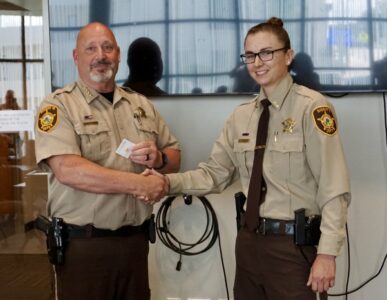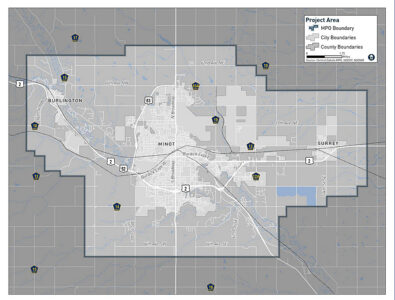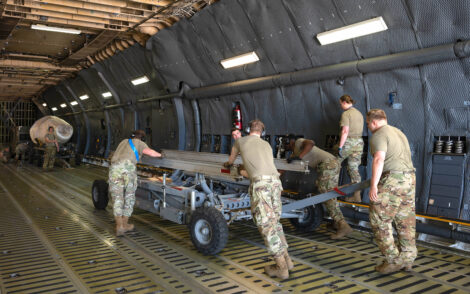Putting a face on farm issues
Area farmers were among 275 agricultural representatives from around the country who traveled to Washington, D.C., to tell the story of the financial squeeze producers face and urge Congress to start thinking about the next farm bill.
Forty-four North Dakotans participated in the National Farmer Union’s legislative fly-in.
A primary issue raised with Congress was the challenge farmers are facing with low commodity prices, said Jim Teigen, a Rugby producer.
“Our input costs are so expensive. They haven’t dropped in price as the commodity prices have, and commodity prices are dropping drastically,” he said. “For most producers across the country, we are looking at very little chance to show a profit.”
Average net farm income in North Dakota has dropped from $76,404 in 2014 to $28,600 in 2015, a 63 percent decline, according to the Farmers Union.
The message to lawmakers was there needs to be a change in the farm bill that Congress will start working on next year. Farmers encouraged lawmakers to start work early to gain as much input as they can in seeking out new and innovative ideas, Teigen said.
Since many farmers, especially younger producers, will find it difficult to repay loans this year, the fly-in group asked Congress to use existing tools to provide more immediate help. The current farm bill makes provisions in case commodity prices are low, but payments are a year behind, resulting in payments for this year’s crop not showing up in farmers’ hands until next year.
“That’s going to be too late for some of these producers,” Teigen said. “We are asking them to step up a portion of those payments to make those available earlier to help those who are really in dire straits.”
One trend with potential to affect the bottom line for farmers is the consolidation occurring among chemical and seed companies.
Travis Bruner of Drake, who participated in the fly-in, said farmers discussed with lawmakers their concern about monopolies and reduced competition driving input costs up further.
“It hit home for me. I farm and ranch with my dad and two younger brothers so I see first-hand how that affects us. Those input costs are the biggest expense we have when it comes to farming. Anything to control or limit those prices is beneficial to us,” he said.
Other topics included the Trans-Pacific Partnership, a proposed trade agreement that the Farmers Union opposes because it sees little of the promised benefit materializing for agriculture. The fly-in group asked lawmakers to monitor the Environmental Protection Agency to maintain the intent of the Renewal Fuels Standard. Encouraging ethanol production means jobs for rural areas and more energy security for the country, Teigen said.
Clint Gjellstad, a Velva producer, said the purpose behind traveling to Washington was to put a face on the issues for Congress.
“Getting down there in front of them helps remind them who is out there actually growing food for this country and others,” he said.
It also was enjoyable to come together with other producers to talk about the industry, Gjellstad said. It was an opportunity to look at the broader issues of trade or corporate mergers, which impact the day-to-day production decisions that consume so much of a producer’s attention, he said.
North Dakota’s participants met not only with the state’s congressional delegation but in small groups with Congress members or staff from other states. They reported a positive reception.
Bruner said he came away encouraged. He said the visit was beneficial, too, in reinforcing farm positions and directing lawmakers to look more deeply into those issues.
“We were there to promote family farms and family farm agriculture,” Bruner said. “That was our main goal.”
Adam Liesener of Ray, a student at Valley City State University, said the trip was a learning experience for him as well as an opportunity to support the state’s agricultural industry.
“The people we talked to were very receptive,” he said. “Even if they weren’t on the side of what we wanted them to do, they were really receptive and they wanted to hear the other side of the story.”
Bruner and his wife, Ashley, also took part in a leadership program for young producers as the North Dakota Farmers Union’s Enterprise Leadership Couple for 2016. The Washington, D.C., meeting was one of a series of meetings that have been held with Enterprise couples from the Dakotas, Minnesota, Wisconsin and Montana.



